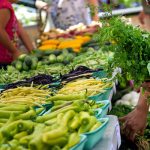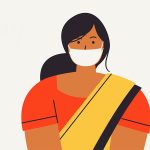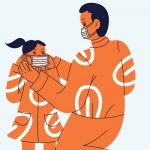COVID-19 News

Discrimination and safety concerns are barriers to accessing healthy food for food-insecure emerging adults
University of Minnesota School of Public Health researchers recently completed a study to determine how food-insecure emerging adults adapted their eating and child-feeding behaviors during COVID-19.

The COVID-19 pandemic has been linked with six unhealthy eating behaviors
A University of Minnesota Medical School and School of Public Health study shows a slight increase in eating disorders, one of the deadliest psychiatric health concerns.

Understanding the impact of the COVID-19 pandemic on stress, mood, and substance use among young adults in Minnesota
The majority of young adults reported that the COVID-19 pandemic had some impact on their mood or stress levels and over one-third indicated that their pattern of substance use had changed in response to the pandemic.

Understanding Changes in Eating Behaviors Among Young Adults During COVID-19
The present study examined associations between stress, psychological distress, financial difficulties, and changes in eating behaviors during the pandemic.

Changes in Interpersonal Relationships of Emerging Adults during the COVID-19 Pandemic: Implications for Psychosocial Distress
Depressive symptoms and stress during the pandemic are higher among emerging adults who indicate that COVID-19 had a strong influence on their relationships with family members and friends.

Barriers to Food Access & Food Assistance Among Food Insecure Emerging Adults During the COVID-19 Pandemic
Key themes from the interviews identified barriers to local food access and food assistance for food insecure young adults.

COVID Added to Healthy Food Barriers for Adults 18–26
Early pandemic conditions this spring were associated with a spike in food insecurity for emerging adults in the Minneapolis/St. Paul area.

Family Meal Routines are Helpful for Health and Well-Being During COVID-19
Engaging in family meal routines may promote better dietary and emotional well-being during the COVID-19 pandemic, and potentially other public health crises.

Emerging adults are struggling with food insecurity during the COVID-19 pandemic
Lead researcher Nicole Larson says the study results reveal a need to expand food assistance benefits for people ages 18-26 years old, reduce barriers to safely purchasing healthy foods, and other measures.

Food Insecurity among Young Adults During COVID-19 Summary of Findings
Food and health needs of food insecure young adults in the Minneapolis-St. Paul metropolitan area during the COVID-19 pandemic.

Young Adults & Families C-EAT Policy Brief
Understanding how to best adapt our public health responses to COVID-19 to support Minnesota families.
Related Stories
Weight Stigma Predicts Emotional Distress and Binge Eating During COVID-19 (UConn Today)
